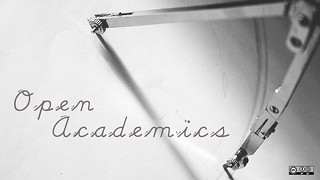
CC Rockcreek
Bourdieu passed away just as the web was starting to emerge as a social phenomenon worthy of our attention. As a new space for socialisation and participation, Bourdieu would have had a lot to say about the web. That is not to say that he would have painted a rosy picture of it. He would have probably been as indignant as ever of the appropriation of its potential to less altruistic purposes.
Bourdieu was very tough in his essays On Television, particularly where the journalistic field was concerned. His main concern was that television, and tele-journalism in particular, were taking away the monopoly of the instruments of cultural diffusion from its main cultural producers, i.e, artist, writers, scholars, philosophers, newspaper journalists… “the official thinkers”. Bourdieu described a manipulative television that imposed a particular vision of the political field onto its audience, thus depriving them of intellectual debate. In this vein, Bourdieu tried to make a stand against television turning into an instrument of symbolic oppression, when it could, in his opinion, “have become an extraordinary instrument of direct democracy”.
It is almost impossible not to notice that Bourdieu felt that same symbolic oppression hard in the flesh, as television grew more influential on the masses, without him – or any other intellectual for that matter – having full control of that instrument of cultural production. Indeed, Part One of On Television starts with a reflection on that very same issue, with Bourdieu admitting that what follows are two lectures recorded by the audiovisual services of the College de France, which gives him full control of the medium. And so Bourdieu admits, even if implicitly, that his critique of television is not only based on the ways it manipulates its audience (based on external factors that are at stake and the internal rules that are created to answer to those external demands); but also founded on intellectuals’ lack of control of the medium; an issue that affects him personally, and the work of academics in particular.
I would like to believe that Bourdieu would have enjoyed some of the affordances the web has offered us as cultural producers a bit more than he did appreciate television, although – it has to be said – he would probably have been as critical of it as he was of television as a medium of diffusion. The issue, however, is that the web cannot be solely regarded as a medium of diffusion, but rather as a medium of multi-way communication; a platform where individuals can congregate to discuss and create new knowledge, without necessarily being “professional cultural producers”. This is obviously the short and rosy interpretation of the web, and one that Bourdieu would probably have not been so fond of. Firstly, because a field needs to be regarded in relation to its social agents and the different types of capital that matter in that field. Secondly, and probably more surprisingly, because – basing my judgement on his ideas expressed On Television – the web blurs boundaries and allows individuals to proclaim themselves as culture producers, and that can also jeopardise the work of academics. And so, if Bourdieu thought that television manipulated intellectual input by forcing a single view of reality onto its audience, would he have agreed with the web as a space of social encounters where the freedom of thought and debate can be exercised without any restrictions? I am tempted to say he would have not.
What is curious to me, however, is that via On Television, Bourdieu does portray a more biased view of the topic he is reporting on than we were use to in previous writings and reflections. And so I wonder if that is so because he felt television weakened his professional authority as he was not fully in control of the medium?
A close read of On Television, tells me that Bourdieu would have, most likely, been skeptical of the web because it allows a shift of power and entitlement that would have affected him directly… probably more than he would have liked. On reflection, I am not sure if he would have championed the web as an instrument of direct democracy.
The post What Bourdieu would say about the web appeared first on Social Theory Applied.
Podcast: Play in new window | Download
Subscribe:






